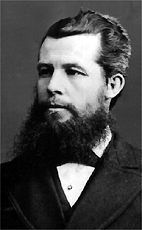A Quote by Margo Jefferson
Criticism does demand a certain kind of authority, but what about the authority of not really being sure what you think? What about the authority, the authenticity that comes from bringing all your intellectual, emotional and spiritual equipment to a piece of art or entertainment whilst still being uncertain and confused?
Related Quotes
For authority proceeds from true reason, but reason certainly does not proceed from authority. For every authority which is not upheld by true reason is seen to be weak, whereas true reason is kept firm and immutable by her own powers and does not require to be confirmed by the assent of any authority.
This is the essence of Kingdom Authority. Fathers can have no authority in the home until they have surrendered to the headship of Jesus. Mothers cannot pray with authority for their children when they have no submissive spirit to their own husbands. Pastors cannot lead, teach, or preach with anointing and supernatural power without being fully broken and surrendered to the lordship of Christ, the authority of the Word, and the commands of the Spirit.
I'm happy to respect authority when it's genuine authority, based on moral or intellectual or even technical superiority. I'm eager to follow a hero if we can find one. But I tend to resist or evade any kind of authority based merely on the power to coerce. Government, for example. The Army tried to train us to salute the uniform, not the man. Failed. I will salute the man, maybe, if I think he's worthy of it, but I don't salute uniforms anymore.
God has ordained the state as a delegated authority; it is not autonomous. The state is to be an agent of justice, to restrain evil by punishing the wrongdoer, and to protect the good in society. When it does the reverse, it has no proper authority. It is then a usurped authority and as such it becomes lawless and is tyranny.
...[sacred] doctrine is especially based upon arguments from authority, inasmuch as its principles are obtained by revelation: thus we ought to believe on the authority of those to whom the revelation has been made. Nor does this take away from the dignity of this doctrine, for although the argument from authority based on human reason is the weakest, yet the argument from authority based on divine revelation is the strongest.




































